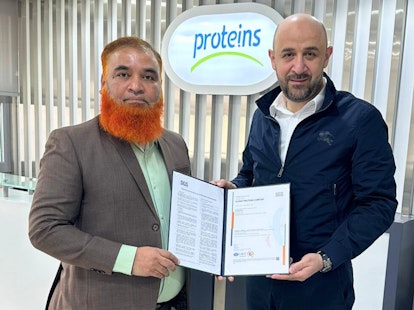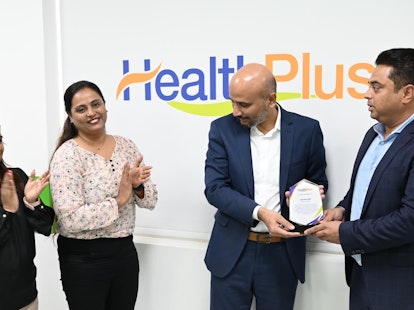The importance of the BRCGs Packaging material global standard cannot be overstated within the packaging industry. It serves as a benchmark of quality, safety, and operational criteria, ensuring that manufacturers meet legal obligations and protect the consumer.
As a leader in inspection, verification, testing, and certification, SGS showcases its unparalleled expertise in conducting BRCGS, formerly known as BRC audits across Middle Eastern countries, including the UAE, Saudi Arabia, Jordan, and more. Our experience spans a wide array of packaging manufacturing sectors, ensuring compliance and fostering trust between suppliers and retailers.
The BRCGS standard is crucial in the competitive packaging industry, yet challenges in meeting this standard might take place.
This article highlights the top 10 non-conformities identified by SGS BRCGS experts in the Middle East, offering insights into each and proposing solutions to improve compliance and performance.
List of the Top 10 Non-conformities Identified through BRCGS Audits for Packaging manufacturers in the Middle East
- Culture Improvement Plan Deficiencies (1.1.2)
Some companies might fail to include a mechanism for evaluating the effectiveness of their culture improvement plans. Without this critical process, it is challenging to measure progress or identify areas needing further improvement, leading to stagnation in cultural development. A dynamic, evaluative approach is necessary to foster a culture of continuous improvement and compliance.
Solutions
Availability of a detailed improvement plan, including clear objectives.
Monitoring key indicators such as staff retention rates, employee engagement levels, cultural shifts, and incident occurrences.
Conducting staff surveys with a focus on culture and values.
Implementing a review of training programs and enhancing staff development initiatives
- Supplier approval and performance monitoring (3.7)
Misunderstandings surrounding the 3.7.2 Supplier Approval Process might occur among organizations. This lack of knowledge can lead to an increase in the risk of contamination, recalls, and food safety issues and vulnerabilities within the supply chain, affecting product safety and quality. Educating companies on this critical aspect is essential for ensuring a robust and secure supply chain.
Solutions
Provide detailed training on the supplier approval process.
Establish a robust supplier evaluation and monitoring system.
- Site Security and Food Defense (4.4)
Issues with food defense and site security, including insufficient measures to prevent unauthorized access and inadequate systems to address potential tampering or contamination, are common findings.
Solutions
Assess risks and vulnerabilities to develop a tailored food defense plan.
Install security systems, such as cameras and access control, to monitor and limit access to sensitive areas.
Train staff on security procedures and the importance of vigilance in food defense.
- Traceability (3.11)
A robust traceability system is essential for tracking products throughout the supply chain, facilitating efficient recalls when necessary. Failures in traceability coding can stem from inadequate systems or processes, highlighting the critical nature of investing in effective traceability solutions to ensure product safety and regulatory compliance.
Solutions
Implement a robust traceability system.
Conduct regular traceability tests to ensure system effectiveness.
- Premises and Equipment Hygiene (4.5.3)
The cleanliness of premises and equipment plays a vital role in preventing contamination and ensuring product safety.
Non-conformities in this area often arise from inadequate hygiene practices, insufficient cleaning schedules, or the lack of a systematic approach to hygiene management, highlighting the need for rigorous and regular hygiene protocols.
Solutions
- Implement regular hygiene audits.
- Establish strict cleaning schedules and protocols.
- Equipment Non-conformities (4.6)
Equipment not properly designed, constructed, or maintained can become a source of contamination and operational inefficiency. Issues such as difficult-to-clean surfaces, inadequate maintenance schedules, and the use of inappropriate materials in construction can lead to significant non-conformities, emphasizing the importance of equipment suitability and upkeep.
Solutions
- Ensure equipment is designed for easy cleaning and maintenance.
- Schedule regular equipment inspections and maintenance
- Temporary Repairs (4.7.6)
The use of temporary materials such as tapes for repairs and amendments is a common non-conformity, indicating a lack of long-term maintenance planning. This practice not only jeopardizes the integrity of the packaging process but also reflects poorly on the organization's commitment to maintaining high standards of operation and product quality.
Solutions
- Develop a maintenance strategy that prioritizes long-term solutions.
- Train maintenance staff on the importance of permanent repairs.
- Apply standard requirements for temporary repairs.
- Pest Control Management (4.11)
Pest control is a critical aspect of food safety. Non-conformities often arise from inadequate pest control measures, evidence of pest activity within facilities, or lack of regular inspection and monitoring.
Solutions
- Develop a comprehensive pest management program, including routine inspections and monitoring.
- Seal all potential entry points and eliminate sources of food and water for pests.
- Engage a professional pest control service to ensure effective management and compliance.
- Personal Hygiene (6.2)
Non-conformities related to personal hygiene of staff, including inadequate hand washing facilities, poor personal behavior that could lead to product contamination, and insufficient training on hygiene practices are very critical to the BRCGS.
Best Practices
- Install adequate handwashing facilities and enforce strict handwashing protocols.
- Implement a dress code and personal hygiene policy for all staff.
- Conduct regular hygiene training and monitor compliance.
- Organizations Awareness of P618 Position Statement (issue 6, version 3 dated 17.03.2023)
In case the P618 Position Statement goes unnoticed by organizations, it can significantly impact their compliance with BRCGS standards.
This document is an integral part of the Standard and should be studied carefully. The P618 Position statement covers such important aspects as food fraud, disposable items, functional packaging claims and allergen management.
This oversight reflects a broader issue of inadequate attention to detailed guidelines and updates from BRCGS, which are crucial for maintaining certification and ensuring ongoing compliance.
Solutions
- Highlight the importance of P618 through internal communications.
- Integrate P618 compliance into regular audit and review processes.
Conclusion
Addressing these non-conformities is crucial for packaging organizations aiming to achieve and maintain BRCGS certification. Through dedicated efforts to enhance awareness, improve operational processes, and invest in long-term solutions, companies can overcome these challenges.
SGS remains committed to supporting businesses in the Middle East market with an active presence of our local auditors in in UAE, Saudi Arabia, Jordan, Kuwait, Qatar, Oman, Bahrain. Pakistan, and Türkiye.
Our certified auditors are leveraging our expertise to guide packaging manufacturers toward excellence and compliance in an increasingly demanding industry.
SGS Certification Solutions: Elevating Food Safety, Quality, and Sustainability
In the dynamic and ever-evolving food and beverage sector, safety, quality, and sustainability stand as the pillars of consumer trust and regulatory compliance.
Recognizing the critical importance of these factors, SGS offers comprehensive food audit and certification services to big players in the Middle East region across UAE, KSA, Kuwait, Jordan, Oman, Bahrain, Qatar, Pakistan, and Turkey.
We conduct thorough assessments across the entire supply chain, evaluating facilities in accordance with esteemed standards, including BRCGS, FSSC 22000, IFS, ISO22000, HACCP, GMP, and FSC.
Our mission is to ensure that food products and processes across the supply chain adhere to the highest standards, from farm to fork.
About SGS
We are SGS – the world’s leading testing, inspection and certification company. We are recognized as the global benchmark for sustainability, quality and integrity. Our 99,600 employees operate a network of 2,600 offices and laboratories around the world.
Plot # 04, Sector 24,
Korangi Industrial Area, Near Shan Chowrangi, 74900,
Karachi, Pakistan




